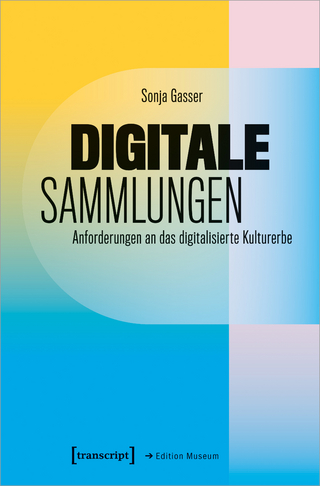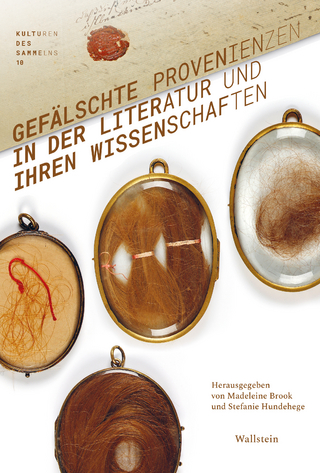
Civilizing the Museum
Routledge (Verlag)
978-0-415-35766-1 (ISBN)
Written over a thirty-five year career, the essays in Civilizing the Museum introduce students to the powerful, sometimes contested, and often unrealized notion that museums should welcome all because they house the collective memory of all.
Drawing on her experience working in and with museums in the US and throughout the world, Author Elaine Heumann Gurian explores the possibilities for making museums more central and relevant to society.
The twenty-two essays are organized around five main themes:
museum definitions
civic responsibility and social service
architectural spaces
exhibitions
spirituality and rationality.
And these themes address the elements that would make museums more inclusive such as:
exhibition technique
space configurations
the personality of the director
the role of social service
power sharing
types of museums
the need for emotion humour and spirituality.
Without abandoning the traditional museum processes, Gurian shows how museums can honour tradition whilst embracing the new.
Enriched by her experience in groundbreaking museums, Gurian has provided a book that provokes thought, dialogue and action for students and professionals in the field to realize the inclusive potential of museums.
Heumann Gurian, Elaine
Foreword, Acknowledgments, List of abbreviations, Introduction: reflections on 35 years in the museum field, PART I: The importance of “and”: about opportunities, possibilities, taxonomy, and definitions, 1. The concept of fairness: a debate at the American Association of Museums, 1990, 2. The importance of “and”: a comment on Excellence and Equity, 1992, 3. The molting of children’s museums? An observation, 1998, 4. What is the object of this exercise? A meandering exploration of the many meanings of objects in museums, 1999, 5. Choosing among the options: an opinion about museum definitions, 2002, 6. Timeliness: a discussion for museums, 2003, PART II: A safer place: museums in a civil society, 7. The museum as a socially responsible institution, 1988, 8. Turning the ocean liner slowly: about the process of change in larger institutions, 1990, 9. The opportunity for social service, 1991 8210. A savings bank for the soul: about institutions of memory and congregant spaces, 1996, PART III: Space, the final frontier: museums, construction, architecture, and space planning, 11. Function follows form: how mixed-used spaces in museums build community, 2001, 12. Threshold fear: architecture program planning, 2005, 13. Free at last: a case for the elimination of admission charges in museums, 2005, PART IV: Noodling around with exhibition opportunities: examining the process that influences them, 14. Answers to the ten questions I am most often asked: a review of exhibitions and learning, 1981, 15. Noodling around with exhibition opportunities: the potential meanings of exhibition modalities, 1991, 16. Let’s empower all those who have a stake in exhibitions: about the uses, meaning, and failings of the team approach, 1990, 17. Reluctant recognition of the superstar: a paean to individual brilliance, and how it operates, 1992, 18. A blurring of the boundaries, 1994, 19. The United States Holocaust Memorial Museum: history or metaphor? 1993, PART V: Spirituality: the end of the age of the rational, 20. A Jew among the Indians: how working outside of one’s own culture works, 1991, 21. Repatriation in context: the important changes brought to museums by indigenous communities, 1991, 22. Singing and dancing at night: a biographic meaning to working in the spiritual arena, 2004, Bibliography, Index
| Erscheint lt. Verlag | 19.12.2005 |
|---|---|
| Verlagsort | London |
| Sprache | englisch |
| Maße | 156 x 234 mm |
| Gewicht | 600 g |
| Themenwelt | Kunst / Musik / Theater |
| Geisteswissenschaften ► Geschichte ► Hilfswissenschaften | |
| ISBN-10 | 0-415-35766-7 / 0415357667 |
| ISBN-13 | 978-0-415-35766-1 / 9780415357661 |
| Zustand | Neuware |
| Haben Sie eine Frage zum Produkt? |
aus dem Bereich


